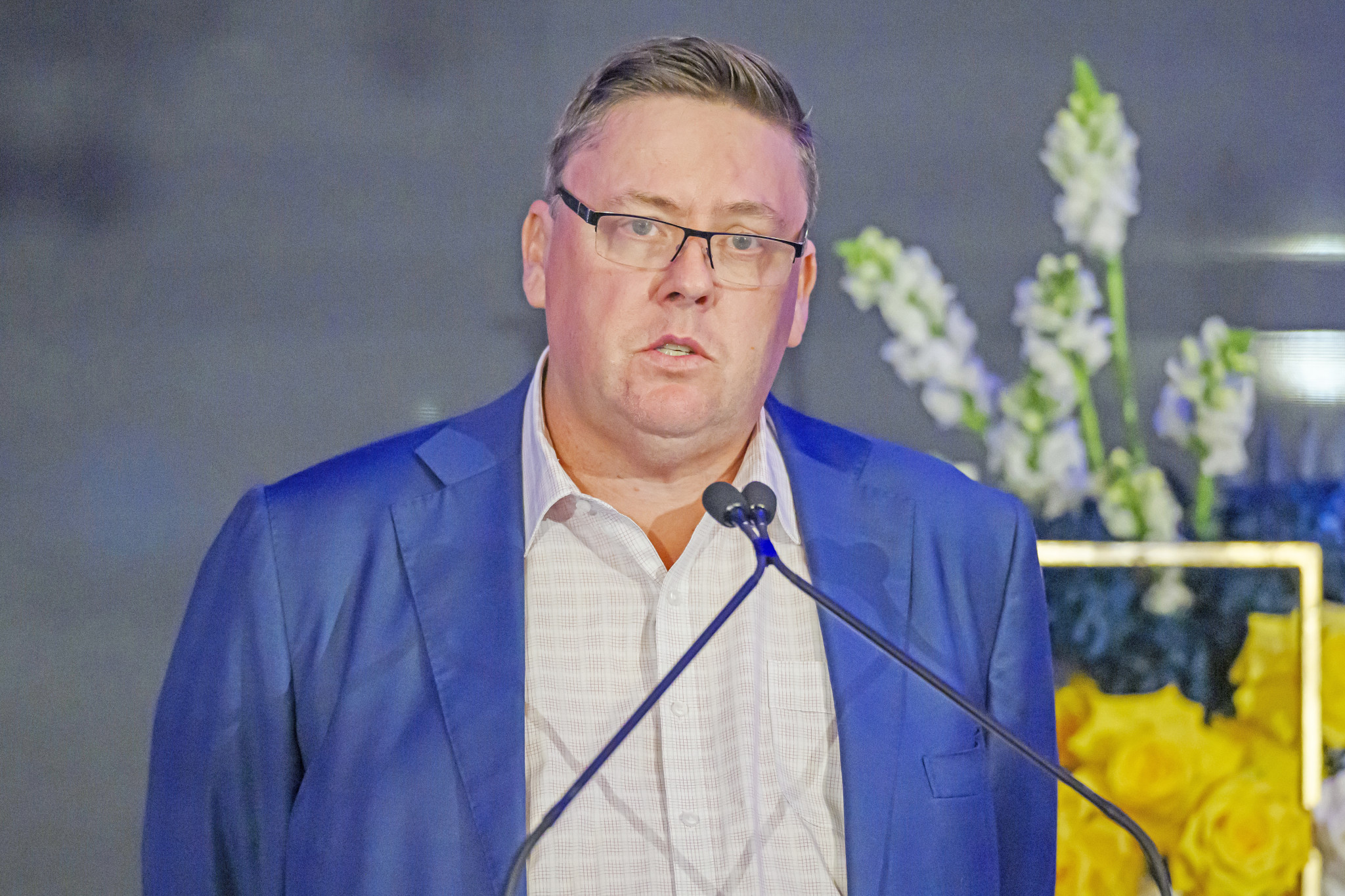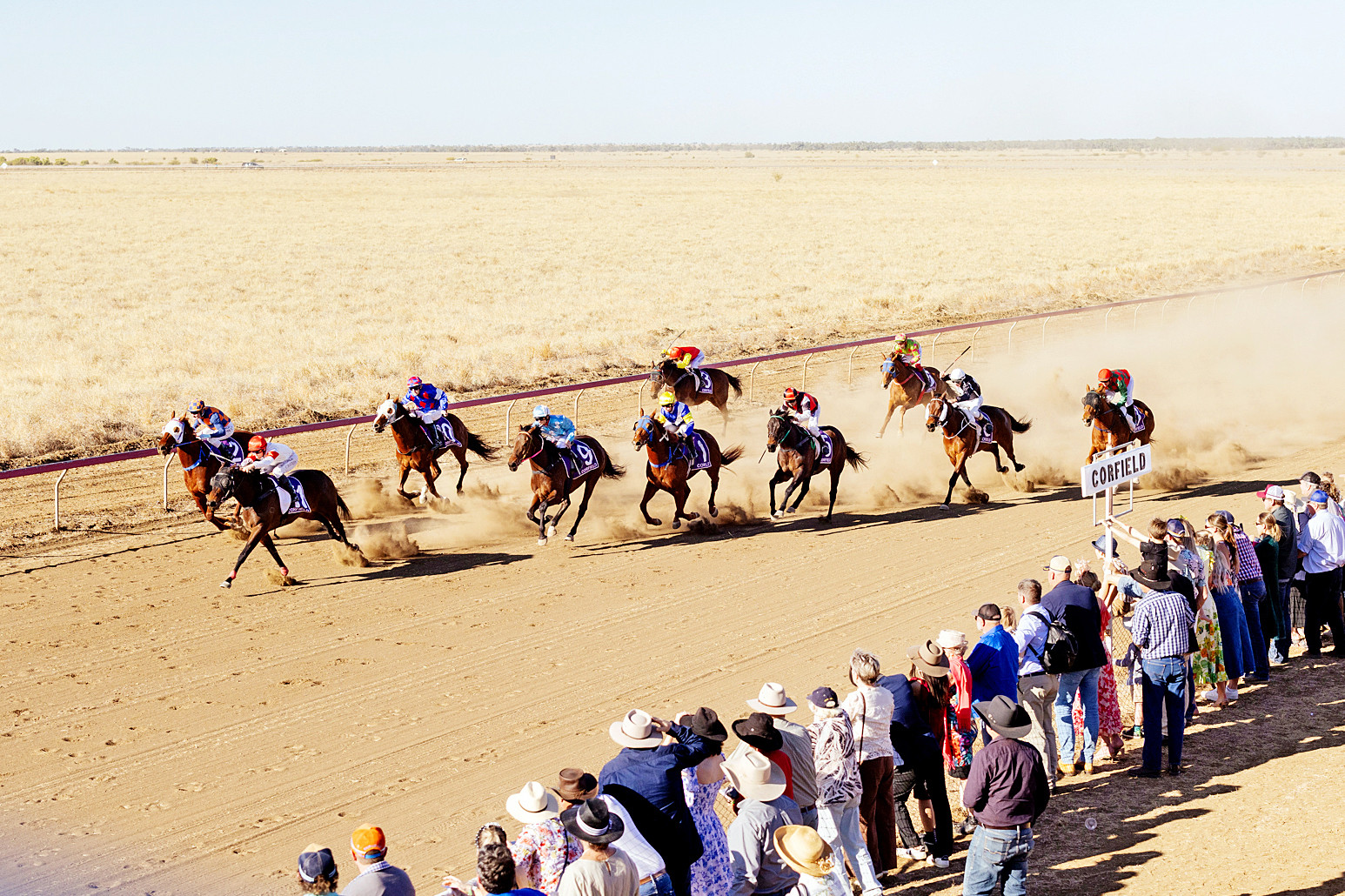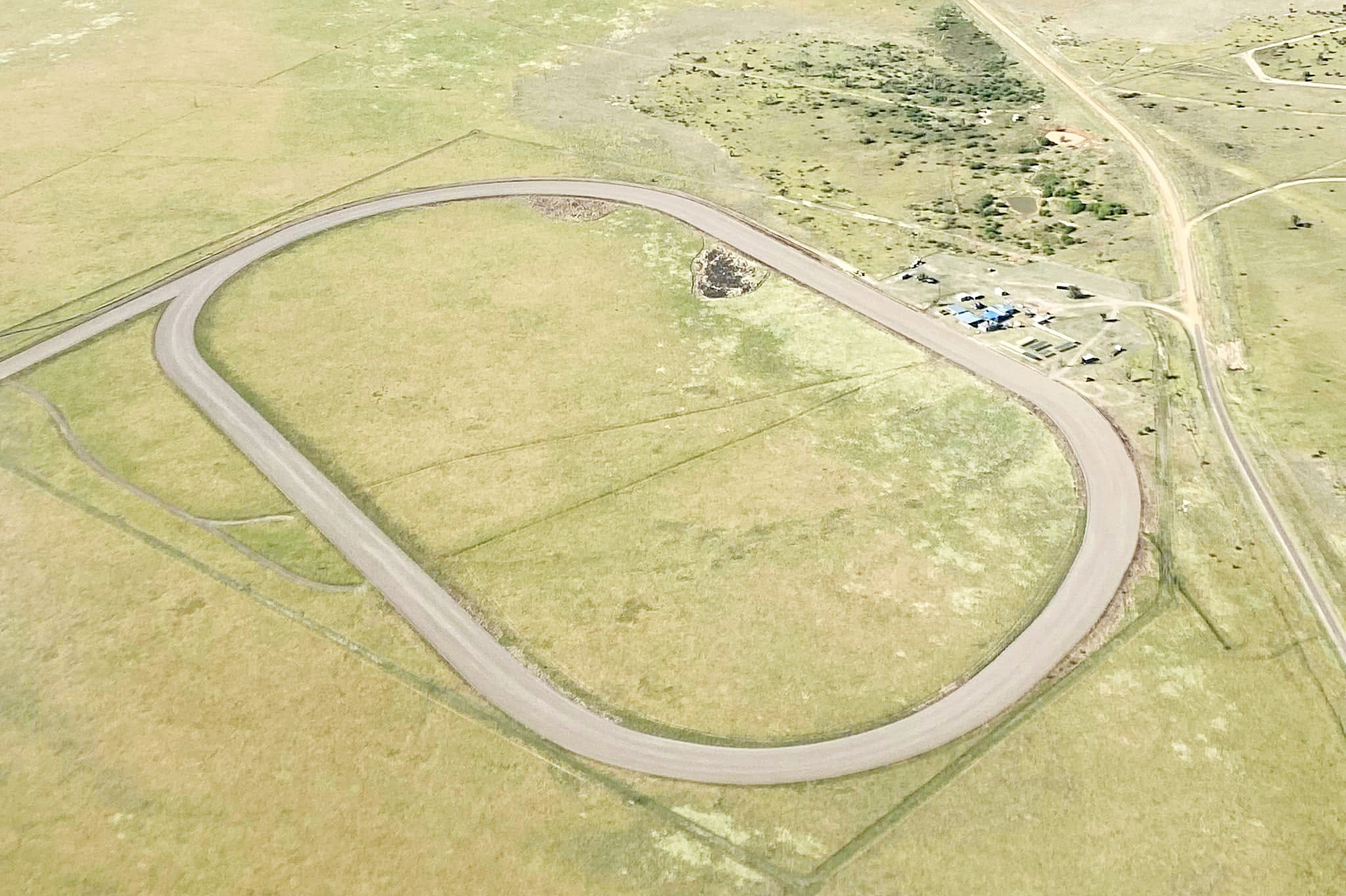Sport
5 February, 2025
Q&A with Racing Queensland CEO Jason Scott
The head of the racing industry discusses some of the challenges in bush racing.

Just days after announcing he was stepping down from the role, Racing Queensland chief executive JASON SCOTT spoke with North West Weekly editor MATT NICHOLLS about some of the concerns facing the local racing industry ...
MN: Jason, you’ve got around six months left in the role. What are you hoping to achieve before you finish up as CEO?
JS: I think it’s going to be an interesting six months because the (state) government is going start a review into racing, which they’ll start at some stage in February, and they’re hoping to be in a position to announce (the results) publicly in August.
I figure my role is not necessarily a caretaker role, but to make sure that things are bubbling along well for the next six months.
The timing of my departure might work well. It’ll allow the Minister (Tim Mander) and the chair of Racing Queensland (Steve Wilson) to work out what direction they want and what sort of CEO they’ll need.
Typically, they’ll find a CEO who is good at the things I was bad at. That tends to be how these positions work and it makes sense.
It might not be at the top of the priority list but there’s a feeling in the bush that racing is facing a tough period. What is Racing Queensland doing at the moment to sort of alleviate some of those fears?
I think there are concerns everywhere. We’ve seen wagering decrease 10 per cent in 2024; it’s another 8 per cent down this year.
And that’s not just a Queensland thing. In actual fact, we’re better off than a couple of the other states.
Frankly, and I’ll put it without being rude to the previous government, we weren’t enamoured with funding from the previous government. The current government is going to use this review to work out what the optimum model is, and the optimum amount of money that Queensland as a whole across all three codes (thoroughbred, harness and greyhound racing) needs to operate.
Your background is in wagering, so when you took on the Racing Queensland job and saw all of these bush tracks that didn’t have outside wagering on them, did that present a challenge? Do you have any thoughts on how we might be able to ensure our races in the North West become more sustainable by increasing the number of TAB meetings?
I think that those tracks still hold a really important part in the racing landscape. Racing’s got to start somewhere and it starts in the bush. What I’m very cognizant of is that those 40 or 50 (non-TAB) tracks, particularly the once-a-year and twice-a-year tracks, have to meet minimum standards.
For instance, we stopped racing at Eagle Farm for eight weeks last year because horses were shying on a certain part of the track.
We need to have that lens across all of our tracks and there are only two ways to fix that – more funding for assets or the consolidation of tracks.
Last year we had tracks with star pickets on the outside rails, star pickets in the tie-up stalls, and things that clearly we just shouldn’t be racing with, in 2025.
The minimum standards have improved.
We need to understand where the funding is and what we’re prepared to put into the once and twice-a-year tracks and if it passes the pub test to keep these tracks as standard, let’s do it.
If a track were to go, that doesn’t mean the region would lose a race meeting.

There are a couple of central hubs in the bush, with Mount Isa in the North West and Longreach and Barcaldine in the Central West. Those tracks have successfully staged more and more TAB meetings in the past couple of years. Do you see a future where there are almost weekly TAB meetings in the North West and Central West?
Definitely, and that will no doubt form part of the review.
This might be lost on some of our casual readers but the racing industry will be keen to hear your thoughts. Last year, one of Racing Queensland’s longest-serving employees, Col Truscott, finished up unexpectedly. It looks like he’s left a pretty big hole. I know his position’s been filled, but did that catch you by surprise about how much went into that role?
No, it didn’t catch me by surprise because I think everyone in Racing Queensland was aware of how much Col did and how many hours he put in.
Probably equally as important was the amount of intellectual property that was between his right and his left ear.
Transferring that to the new person has been very difficult. David Horne, who’s taken over that role, has started brilliantly but he’s not going to learn what Col knew in three years or five years. It’s going to take him 10 years and who knows where he’ll be in 10 years.
So that was a great loss to racing in Queensland.
Animal welfare appears to be at the forefront of decision making in racing, and rightly so. The North West has built a good reputation as being part of the racing ecosystem, where a horse that might be too slow to win in the city or at provincial level, ends up racing here, before being retired to a paddock. There are concerns if bush racing were to die, or to downsize, that it would have a major impact on horse welfare. Does that factor into the decision making?
Well it certainly helps the task of Queenslanders in terms of re-homing all of the horses.
We’re the destination for all of these older horses now to prolong their careers. They’ll come up, they might have five starts in Brisbane until that’s too good for them, then they’ll go and race on the provincial circuit at Rockhampton, Townsville, Cairns, Mackay, wherever that is, until that gets too good for them, and then they move into the country circuit.
It’s actually a great progression for these old horses.
It then creates the problem when they hit 13 years, as Fab’s Cowboy did, and can’t race anymore.
But I think us having that pathway is really helpful for racing in Australia.

I know this is not your direct role, but there is a real concern in the bush about jockey numbers this year, which is nothing new but seems to be an alarming problem heading into 2025. Do you have any thoughts on how we might fix some of the issues?
I do have some thoughts and it’s not going to be popular.
We are never going to solve the problem of jockey shortages when you have a look at racing in Queensland.
We probably race 15 Mondays a year, 35 Tuesdays, one meeting every Wednesday and Thursday, two meetings on a Friday, 10 meetings on a Saturday, sometimes more, and then one meeting on a Sunday.
On Saturdays, we can have four TAB meetings and six or eight non-TAB meetings, depending on the week.
The only way that we’re going to be able to sustain this level of racing is if more clubs will agree to not race on Saturdays. We’re happy to work with them, to work with the local councils to gazette a public holiday on a Friday, or to hold meetings on a Sunday.
Being a jockey is not a simple one-day-a-week job.
We need to give these jockeys and stewards – we’ve got exactly the same problem with stewards but it’s just not as commonly known – to give these jockeys and stewards an opportunity to race two or three times a week.
If we could hold two of our country meetings a weekend – one on a Friday and one on a Sunday – all of a sudden you’ve got more jockeys.
We sent something to all clubs last year asking them to consider changing away from Saturdays.
One club was willing to move to a Sunday.
Financially, the status quo it’s not tolerable for the jockeys. They can’t earn enough money racing in a six-race program.
The solution has to be to give them the opportunity to ride in two or three meetings a week.
But traditionally we’ve always all raced on Saturdays and nobody’s really keen to change, but I think eventually that’s the right model.
We had a legendary jockey in Keith Ballard retire last year. Do you think Racing Queensland maybe missed a step by not congratulating or reaching out to him? It was noticed by some in the local industry.
Yeah, I think we certainly should have done more.
I ran into Keith in Hong Kong about three weeks after (he retired) and thanked him but I think publicly we certainly should have done more and I acknowledge that was an error by us.